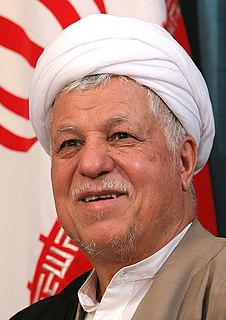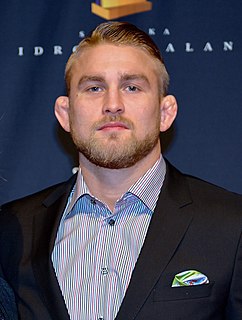A Quote by Torbjorn Tannsjo
Normative ethics, pursued as a free, systematic, and critical attempt to find moral truth, regardless of religious and other authorities, is a rather new adventure. Let's wait and see what will happen!
Related Quotes
As long as mankind is made up of independent individuals with free will, there cannot be any social status quo. Men will develop new urges, and these will give rise to new problems, which will require ever new solutions. Human life implies adventure, and there is no adventure without struggles and dangers.
Any first-order, substantive normative theory worth its salt will require attention to the mental states of agents in a variety of quite complex ways. But realism, being a view about the status of such normative theories, insists that the truth of any firstorder normative standard is not a function of what anyone happens to think of it.
Through my newspaper comic strip, public speaking, and filmmaking, I try to tell as many people as possible, of all ages and from all walks of life, that we are destroying the ocean at such an alarming rate that we can't wait for a systematic solution. We can't wait for our political leadership to warm up to the idea, and we can't wait for the free market to find alternatives. We must act as individuals, now.
Kant's description of most ethical duties reads more like a description of moral virtues and vices. Once we see this, we see that Kantian ethics is indeed a kind of virtue ethics, and that it does not "divide the heart from the head" (to anticipate one of your later questions) but instead recognizes the deep truth that reason and emotion are not opposites.
In later years, when I started working in police ethics, I was professionally drawn back to the topic but as well was better able to see two sides to loyalty - its importance for certain central human relations such as friendships, but also its corruptibility in the sense that loyalty could be invoked against other moral constraints: it sometimes function as something of a moral Trojan horse, undermining other moral considerations.
Under theocracies and other authoritarian regimes, the rulers are the moral authorities. Under genuine democracy some basic values are entrenched in the legal system, which is expected to be under democratic vigilance, and others are left to the person or the group, which ideally debate moral problems in a rational, free and cooperative manner.
Using the phrase business ethics might imply that the ethical rules and expectations are somehow different in business than in other contexts. There really is no such thing as business ethics. There is just ethics and the challenge for people in business and every other walk in life to acknowledge and live up to basic moral principles like honesty, respect, responsibility, fairness and caring.
As I understand it, Kantian constructivism is partly a position in normative ethics and partly a position in metaethics. In metaethics, it is the position that ethical claims have truth values, but their truth conditions consist not in a set of objective facts to which they correspond, but instead in the outcome of some procedure of deliberation resulting in decisions about what to do.
This democracy... The elections in Iraq were held despite the American opposition. It was the will of the Iraqi people and the religious authorities. [The elections] were the result of pressure by Ayatollah Sistani, by the Iraqi religious authorities, and by the fighting forces in Iraq on America. They left the US no choice but to allow the elections.
I take facts about reasons to be fundamental in two ways. First, I believe that facts about reasons are not reducible to or analyzable in terms of facts of other kind, such as facts about the natural world. Second, I believe that reasons are the fundamental elements of the normative domain, and other normative notions, such as goodness and moral right and wrong can be explained in terms of reasons.































